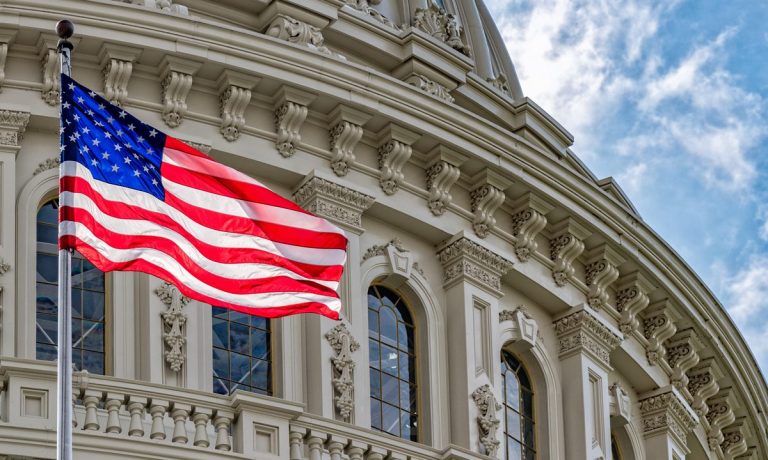Six Crypto Execs Warn Congress Not to Overregulate Crypto

Call it crypto on the Hill.
Wednesday (Dec. 8) promises to shine a spotlight on the opportunities and challenges confronting cryptocurrency firms, including stablecoin issuers and exchanges.
The hearing before the U.S. House Committee on Financial Services is titled “Digital Assets and the Future of Finance: Understanding the Challenges and Benefits of Financial Innovation in the United States.”
And from last week’s announcement of the hearing, we can get a sense of what to expect today.
“Given the digital asset sector’s growth and evolution, several questions have arisen as to how regulators can ensure investor protections, ensure consumer protections, and maintain market integrity. The House Committee on Financial Services has explored the emergence of cryptocurrencies as an asset class for investors. implications for consumer privacy and financial inclusion, and the promises and perils of central bank digital currencies (CBDCs),” the announcement said.
But the same notice advises that “currently, cryptocurrency markets have no overarching and centralized regulatory framework, leaving investments in the digital assets space vulnerable to fraud, manipulation, and abuse.”
Initial testimony provided by witnesses seem focused on how U.S. policy should be approached. Witnesses on the docket include: Jeremy Allaire, co-founder, chairman and CEO, Circle; Samuel Bankman-Fried, founder and CEO, FTX; Brian P. Brooks, CEO, Bitfury Group; Charles Cascarilla, CEO and co-founder, Paxos Trust Company; Denelle Dixon, CEO and executive director, Stellar Development Foundation; and Alesia Jeanne Haas, CEO, Coinbase Inc. and CFO, Coinbase Global Inc.
Jeremy Allaire, co-founder and CEO of Circle, said in his remarks that as many as 20 million people in the U.S. and 200 million around the world participate in the digital asset market.
“Today, we are at a pivotal moment in the development of the next major infrastructure layer of the internet, extending from an internet of data, content and communications, to an internet of value exchange and economic coordination,” he said. “The impact of this development on the future of U.S. economic competitiveness cannot be overstated.” He said the U.S. should aggressively promote the use of the dollar as the “primary currency of the internet.”
He cautioned that, as findings of the President’s Working Group report on stablecoins highlighted, “not all of these [digital] payment instruments are created equal — but, by the same token, not all of them are part of an unregulated Wild West as has been often portrayed.”
He said stablecoins, and in the case of USDC, those with liquid asset and dollar-denominated backing, are “held conservatively in the care, custody and control of the U.S. regulated banking system.” Circle, he noted, is also pursuing a full national banking charter from the Office of the Comptroller of the Currency and added that “we continue prioritizing bilateral and inter-agency engagement with all of the relevant Federal and state financial regulatory stakeholders.” Policy frameworks, he said, need to support an “open and competitive playing field, and allow new technologies to flourish.
Separately, Brian P. Brooks, CEO of Bitfury Group, said in his own testimony that “a national policy agenda that takes crypto compliance seriously should assess whether it makes more sense to continue to keep crypto activities largely out of the regulated financial system, or to bring them inside the system precisely so they can be supervised and operated with appropriate levels of risk management.”
He questioned whether it would be consistent to take the position that only banks should be allowed to issue stablecoins, but then fail to grant bank charters to the largest issuers of stablecoins.
Treating “crypto” as a “single unitary activity,” said Brooks, “whose main feature is a need for financial regulation would be like treating the original Internet in the 1990s as primarily a tax policy issue. We did not do that then.” A successful policy, he said, should be predicated on a “do no harm” strategy.
“It would be worthwhile for the elected branches of government to grapple with the bigger questions,” he said, including, “Do we believe a user-controlled decentralized Internet is better than an Internet largely controlled by five big companies? Do we believe that the financial services sector is any less subject to network effects than information and commerce were in earlier iterations of the Internet? Do we trust big banks more, or open-source software more, as a tool for maintaining ledgers of account and allocating credit and capital?”
Alesia Haas, CFO of Coinbase and CEO of Coinbase’s U.S. subsidiary, said that it is important for the IRS and Congress to ensure individuals and businesses pay the taxes they owe.
“Central to achieving this goal is recognizing the unique nature of crypto technology — and creating parity with other asset classes,” said Haas, who added, “holders of digital assets want to pay their taxes, and centralized crypto intermediaries like Coinbase want clear rules and guidance to help them do that. Digital asset platforms should be subject to the same third-party reporting rules on our customers’ gains and losses that brokerage firms, like Fidelity and Charles Schwab, operate under today.”
Haas warned: “Without tailored legislative solutions that are openly debated with public participation, the United States risks unnecessarily onerous and chilling laws and regulations.”